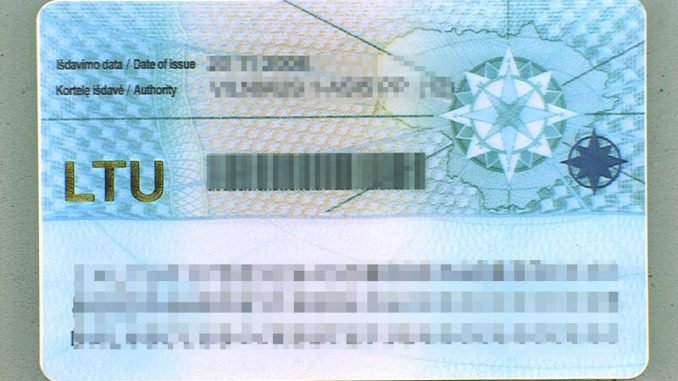
The amendment to the Citizenship Law was proposed by the opposition political group of the conservative Homeland Union – Lithuanian Christian Democrats, with support already secured from elders of all other political groups and Parliamentary Speaker Viktoras Pranckietis. Prime Minister Saulius Skvernelis has also pledged to sign the bill.
“We expect to collect signatures of over 100 Seimas members and propose the bill for registration with a political message that this is the political will of the parliament,” the conservatives’ leader Gabrielius Landsbergis told BNS.
Under the bill, Lithuanian citizenship would be preserved by citizens who left Lithuania after March 11 of 1990 and acquired citizenship of any other country of the EU or NATO.
In Landsbergis’ words, the amendment should be adopted without major delay.
“All the rush has to do with Brexit, especially after Theresa May explained that people would have to choose the citizenship they want to keep to keep the social benefits in Great Britain. Probably all of us understand that people will choose the British citizenship over Lithuanian for the better life that currently exists in England. This is the reason we think that this is the path we should take, and we should take it soon,” the conservative told BNS.
In his words, as the proposal was earlier proposed and criticized as possibly running counter to the Constitution, the amendment soon after adoption would have to be taken to the Constitutional Court for explanation.
The Constitutional Court has earlier concluded that dual citizenship was only possible in rare cases, with broader application only possible after amending the country’s Organic Law. Furthermore, the chapter on citizenship can only be revised by way of referendum.
Currently, dual citizenship is only allowed for the citizens who left Lithuania before the country regained independence in 1990 and their descendants, however, is not granted to those who emigrated during the independence period. Dual citizenship is also allowed for children who were born abroad and acquired foreign citizenship by birth, as well as those who acquired foreign citizenship by way of marriage to a foreigner.
Lithuania’s new government has set a plan of allowing dual citizenship within 30 months. Dual citizenship has been discussed by a number of governments, however, no specific steps were taken to translate it into reality.

Be the first to comment